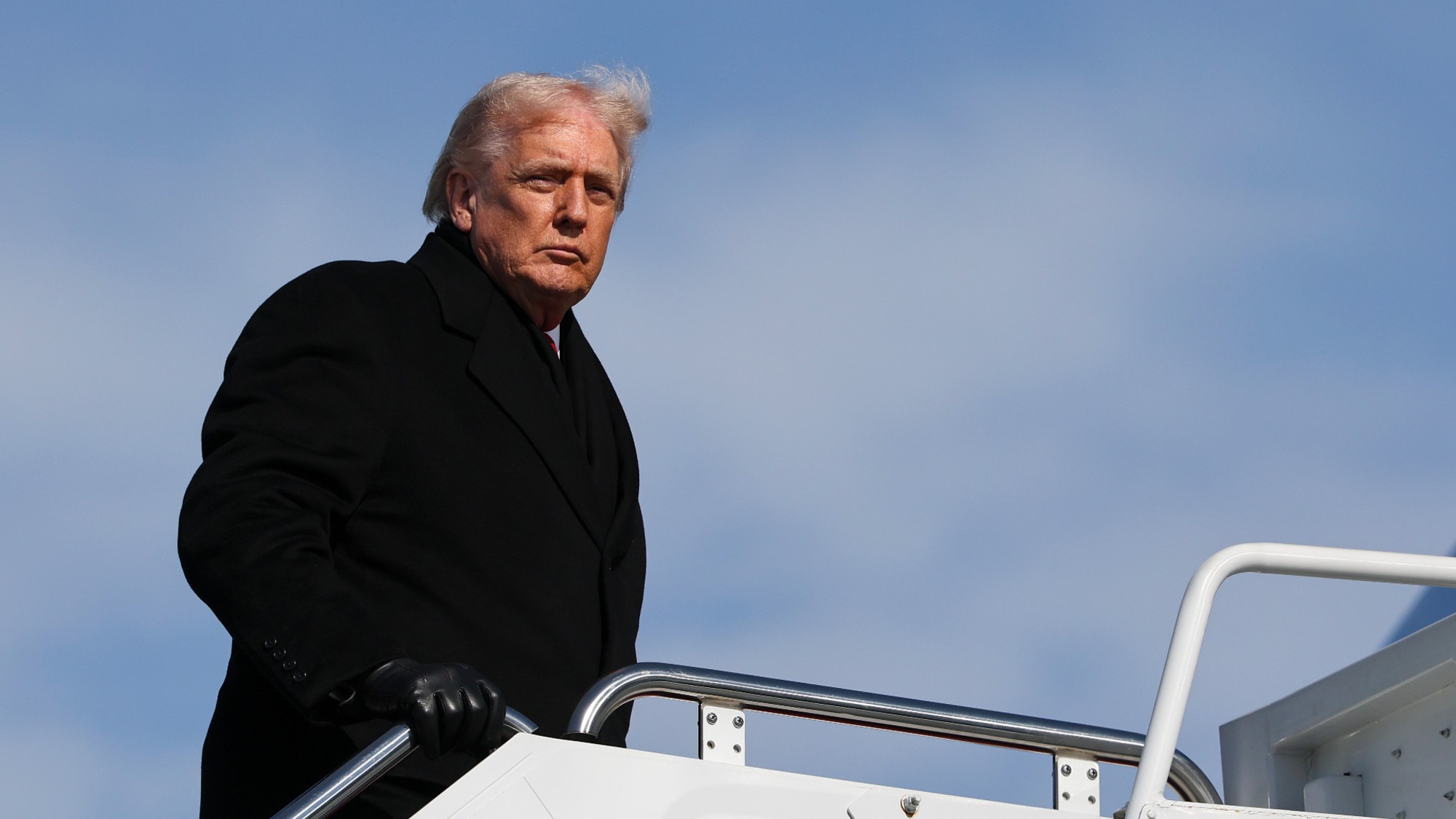America is leaving WHO. What does that mean for public health?
Trump ordered a withdrawal, leaving experts wondering what will happen when the next pandemic hits


The Covid-19 pandemic's outbreak was five years ago, but it still reverberates through American politics. After President Donald Trump on Tuesday ordered the U.S. to withdraw from the World Health Organization, it's clear that his anger toward WHO could "reshape global health," said The Washington Post.
During his first term in office, the president blamed the organization for "fueling the coronavirus pandemic." His new order "immediately terminates" America's relationship with the organization. That leaves WHO, which has fought to eliminate malaria and is currently tracking an outbreak of the Marburg virus in Tanzania, in a precarious position. The "effects of Trump's order could be felt when the next outbreak or pandemic hits," KFF's Jennifer Kates said too the Post.
What did the commentators say?
Trump is "wrong to leave the World Health Organization," former British Prime Minister Gordon Brown said at The Guardian. The president's order directed U.S. agencies to find new partners to "assume necessary activities previously undertaken by the WHO." The problem is there is "no similar organization ready" to take its place. Meanwhile, global health threats continue to proliferate thanks to "mass travel, rising urban populations and human encroachment on wildlife habitats." Without WHO, "we leave ourselves unprepared."
The Week
Escape your echo chamber. Get the facts behind the news, plus analysis from multiple perspectives.

Sign up for The Week's Free Newsletters
From our morning news briefing to a weekly Good News Newsletter, get the best of The Week delivered directly to your inbox.
From our morning news briefing to a weekly Good News Newsletter, get the best of The Week delivered directly to your inbox.
The organization's leaders have used their influence to "impose woke cultural agendas on the world," Wesley J. Smith said at the National Review. It has tried to impose a "radical abortion regime" on countries, and has backed gender-affirming care "as a medical right." Withdrawing from WHO is a shame because it "provides valuable public health and medical services internationally." The organization needs to make big changes "so that Trump feels comfortable in rescinding his decision."
America should "reform the WHO, not leave it," Ashish K. Jha, the dean of the Brown University School of Public Health, said at Stat News. Yes, it is an institution with "deep cultural problems" that "mismanaged the emergence and spread of Covid" from China. But the real question should be how to make it more effective at "serving the public health needs of people around the world." WHO may be flawed, but it is also a "source of crucial coordination and collaboration." Which is why the U.S. should stay. "There are more pandemics and other health crises ahead."
What next?
Reform won't be easy if the U.S. leaves. America provides a "huge amount of money" to WHO, Paul Spiegel of the Johns Hopkins Bloomberg School of Public Health said to Time. Withdrawing that support means "hobbling" the organization instead of helping it make changes. Leaving also means that the U.S. will not have access to WHO's database of influenza strains, endangering health at home. In the meantime, officials are trying to persuade the U.S. not to make the break. A reconsideration, the organization said in a statement, would be to the "benefit of the health and well-being of millions of people around the globe."
A free daily email with the biggest news stories of the day – and the best features from TheWeek.com
Joel Mathis is a writer with 30 years of newspaper and online journalism experience. His work also regularly appears in National Geographic and The Kansas City Star. His awards include best online commentary at the Online News Association and (twice) at the City and Regional Magazine Association.
-
 5 highly hypocritical cartoons about the Second Amendment
5 highly hypocritical cartoons about the Second AmendmentCartoons Artists take on Kyle Rittenhouse, the blame game, and more
-
 ‘Ghost students’ are stealing millions in student aid
‘Ghost students’ are stealing millions in student aidIn the Spotlight AI has enabled the scam to spread into community colleges around the country
-
 A running list of everything Donald Trump’s administration, including the president, has said about his health
A running list of everything Donald Trump’s administration, including the president, has said about his healthIn Depth Some in the White House have claimed Trump has near-superhuman abilities
-
 A Nipah virus outbreak in India has brought back Covid-era surveillance
A Nipah virus outbreak in India has brought back Covid-era surveillanceUnder the radar The disease can spread through animals and humans
-
 Deaths of children under 5 have gone up for the first time this century
Deaths of children under 5 have gone up for the first time this centuryUnder the radar Poor funding is the culprit
-
 A fentanyl vaccine may be on the horizon
A fentanyl vaccine may be on the horizonUnder the radar Taking a serious jab at the opioid epidemic
-
 Health: Will Kennedy dismantle U.S. immunization policy?
Health: Will Kennedy dismantle U.S. immunization policy?Feature ‘America’s vaccine playbook is being rewritten by people who don’t believe in them’
-
 More adults are dying before the age of 65
More adults are dying before the age of 65Under the radar The phenomenon is more pronounced in Black and low-income populations
-
 Ultra-processed America
Ultra-processed AmericaFeature Highly processed foods make up most of our diet. Is that so bad?
-
 Climate change is getting under our skin
Climate change is getting under our skinUnder the radar Skin conditions are worsening because of warming temperatures
-
 Is this the end of ultraprocessed foods?
Is this the end of ultraprocessed foods?Today's Big Question California law and the MAHA movement are on the same track
